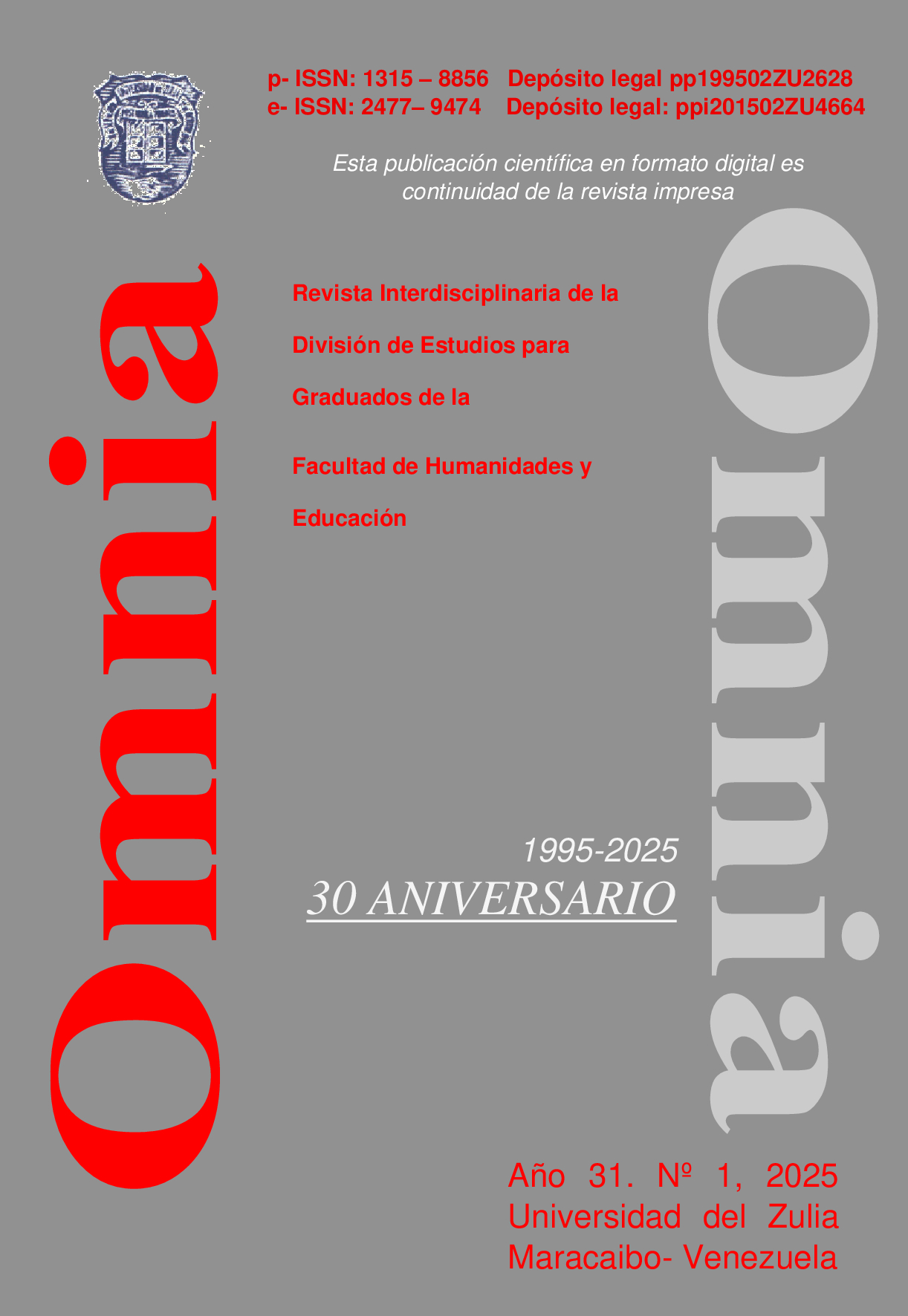Competencias investigativas de los alumnos de pre y postgrado del área de botánica del CIQPN-FHE, LUZ
Resumen
Los centros e institutos de investigación a nivel universitario constituyen espacios para desarrollar las actividades propias derivadas de la investigación. El objetivo del trabajo evaluar las competencias investigativas de los alumnos de pre y postgrado del área de Botánica del CIQPN-FHE, LUZ. La investigación fue cuantitativa, descriptiva y con un enfoque epistemológico introspectivo-vivencial. Los datos se colectaron desde el 2004 hasta 2021 y se procesaron mediante el programa Excel 2016. Los resultados demostraron que los mayores porcentajes de las variables correspondieron al desempeño científico de los alumnos de pregrado: trabajos de investigación (66,7%), asistencia a eventos científicos (86,5%), publicaciones (58,4%), proyectos de investigación (60%) y participación en los servicios comunitarios (100%). La labor que ejercer los Centros de investigaciones, así como también, la interacción entre los investigadores de planta y los alumnos es determinante para la adquisición de competencias investigativas necesarias para un perfil profesional integral.
Descargas
Citas
Camacho, Hermelinda (2000). Enfoques Epistemológicos y Secuencias operativas de Investigación. Maracaibo, Venezuela. Tesis Docto-ral, Universidad Rafael Belloso Chacín.
Hernández, Roberto; Fernández, Carlos y Baptista, Pilar (2014). Meto-dología de la Investigación. Cuarta Edición, México, Editorial Mc Graw Hill.
Hidalgo, Ariel (2021). La importancia de la investigación universita-ria: la formación de profesionales-investigadores. Acta Acadé-mica, 68:87-102.
Quintero, Johana., Maza, Eliumat y Batista, Judeira (2010). Geren-cia de Investigación y desarrollo en centros de investigación de Universidades Públicas Colombianas. Revista Telos, 12 (3), Venezuela. (Pp: 275-286). Extraído de: https://www.redalyc.org/pdf/993/99317-1068002.pd.
Rojas, Arcelia., Castro, Lindomira., Siccha, Ana y Ortega, Yesmi (2019). Desarrollo de habilidades investigativas en estudiantes de en-fermería: Nuevos retos en el contexto formativo. Investiga-ción Valdizana, 13(2), Perú. (Pp: 107-112). DOI: https://doi.org/10.33554/riv.13.2.236.
Rondón, Lelis (2021). El hacer del servicio comunitario en la formación ética social de los estudiantes del sector Universitario. Revista Científica CIENCIAEDUC, Vol. 6 (1).
Sáez, José (2017). Investigación Educativa. Fundamentos teóricos, procesos y elementos prácticos. Universidad Nacional de educa-ción a Distancia. España. 150 p.
Salazar, María Belén., Icaza, María y Alejo, Oscar (2018). La importan-cia de la ética en la investigación. Revista Universidad y Sociedad. Universidad y Sociedad.Vol.10 (1):305-311.
Serrano, Jesús (2020). Metodología de la Investigación. Ediciones Gamma. México. 137 p.





